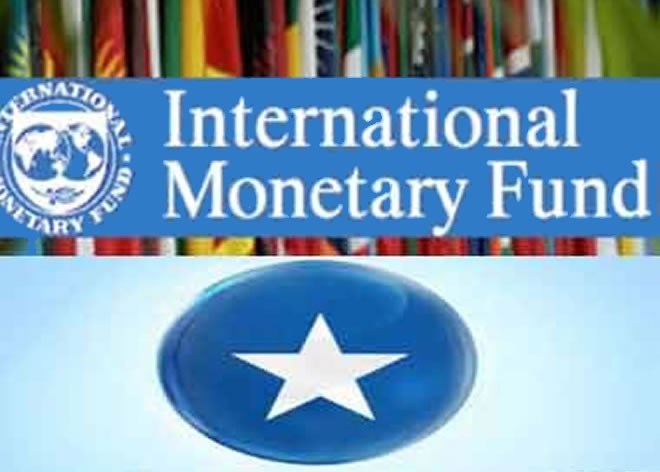
Friday March 4, 2022

President of Somalia Mohamed Abdullahi Farmajo whose term in
office has expired along with his finance minister Abdirahman Beileh and the
International Monetary Fund (IMF) mission chief for Somalia Laura Jaramillo, have
yesterday discussed Somalia’s IMF budget program which is due for a review in the middle
of May 2022.
In the meeting, the IMF warned that it might have to stop its
program in Somalia if there is no new government in place by the time of the pending
review and that election delays mean a new administration may not be ready to
endorse planned reforms in time, forcing an automatic termination. This will risk
the disbursement of budget support grants, opening a financing gap, and without
other financing options available for the Somali government, the financing gap
could result in new domestic arrears, meaning delays in payment of wages,
allowances, and essential goods and services; and derail the timing for the
HIPC Completion Point and full debt relief, the IMF said.
The previous review took place on November 18, 2020. The
delay has already taken a toll on finances, which has been worsened by a
months-long feud between the president and the prime minister.
“Political uncertainty and election delays are also affecting
Somalia’s IMF-supported program. All IMF-supported programs are reviewed by the
IMF Executive Board on a semi-annual basis to assess whether commitments are
adequate to achieve the program’s objectives”, the IMF said in a statement.
It now looks certain Somalia will need an extension for a
review, because of the election delay, but it is not automatic as it would still depend on the approval of
the IMF Executive Board. it seems very
unlikely a new government committed to Somalia’s financial reform agenda would
be in place to agree to a deal. The IMF needs a commitment of at least three
months before the review, the source said.
Although Somalia has maintained strong reform momentum, the
regular review of Somalia’s IMF-supported program is overdue. The next review
can only move forward an agreement with the new government, after the
elections, on the objectives and key policies under the program and confirmation
from development partners that financing will be forthcoming.
Analysts are sceptical about the possibility of elections
concluding in May, with some suggesting that, despite being behind schedule
over a year, it could drag on until June, this year.
According to sources privy to the meeting, president Farmajo
distanced himself from the election delays, noting it was no longer his
responsibility, citing that he handed over election management to Prime
Minister Mohamed Hussein Roble.
Every month, there is $10m gap between the government revenue
and its expenditure. Somalia’s international partners stopped their budgetary
support to Somalia, following delayed elections. Because of these delays,
budget support grants in 2021 were only US$38 million, compared to US$170
million expected in the budget. So far, the resources provided to Somalia as part
of the IMF’s 2021 SDR allocation (SDR157 million) have been compensating for
this revenue shortfall, but these resources will run out in a few months unless
budget support is disbursed.
According to the HOL source, political harmony and an agreed-upon
election outcome would determine basis for the reinstatement of development
partners' budget support to Somalia.
The IMF says achieving full debt relief at Completion Point
is well within reach for Somalia if all requirements are met, and could be
attained as early as next year. However, continued political uncertainty and
election delays risk derailing the whole process.